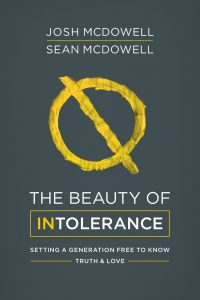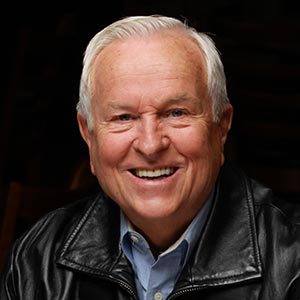Yes or No to Emotional Maturity? That is the Question.
Did you happen to catch the blog post by Dr. Everett Piper, president of Oklahoma Wesleyan University? It’s titled This is Not a Day Care. It’s a University! The short piece packs a powerful punch at cultural tolerance.
“This past week,” shares Piper, “I actually had a student come forward after a university chapel service and complain because he felt ‘victimized’ by a sermon on the topic of 1 Corinthians 13 (the love chapter). It appears this young scholar felt offended because a homily on love made him feel bad for not showing love. In his mind, the speaker was wrong for making him, and his peers, feel uncomfortable.“

Truth That Hurts Can be a Good Thing
“I’m not making this up,” continues Piper. “Our culture has actually taught our kids to be this self-absorbed and narcissistic. Any time their feelings are hurt, they are the victims. Anyone who dares challenge them and, thus, makes them ‘feel bad’ about themselves, is a ‘hater,’ a ‘bigot,’ an ‘oppressor,’ and a ‘victimizer.'”
To this point, some college campuses students were provided with designated “safe spaces” to process their anxiety over the presidential election. Jonathan Helwink, an attorney and history professor writes in response to the “safe spaces” movement:
“When we limit students’ ability to discuss controversial ideas, we allow harmful prejudices and thoughts to fester. Classrooms should offer more….When certain speech is punished, or forbidden by trigger warnings or safe spaces, students are not constructively confronted about their (alleged) racism, sexism, et cetera, through reasoned argument. Instead, they are silenced through intimidation and threatened punishments. In the meantime, the erroneous thoughts are not displaced; instead, they persist without challenge.”
Is that the societal standard we really want to aim for?
Cultural Tolerance Fuels Helplessness
Last spring, at one of the local Texas high schools, National Honor Society students were prohibited by school administrators from wearing graduation stoles that signified their scholastic achievement. Why? Because the administrators worried that other kids without academic designations would feel slighted or subpar.
Numerous news outlets covered the story. The local ABC affiliate did so with this headline: No National Honor Society Honors for Plano Senior High Grads. The Washington Times was a bit cheekier with its headline: School Bars Honors Insignia at Graduation to Protect Underachievers’ Feelings.
So is the message this? That it’s better to homogenize an event, rather than highlight hardworking individuals, to make sure everyone else feels “comfortable”?
It’s sad when anyone is not challenged to test their mettle. Mostly because these individuals miss out on knowing that they are stronger and more resourceful and capable than they believe possible. But they also miss out on learning that God is the one who holds and carries them, and it is through Him that we’re able to become our best selves.
Society Needs Our Maturity
Dr. Piper’s response to his “uncomfortable” student? Basically, to grow up.
“If you want the chaplain to tell you you’re a victim rather than tell you that you need virtue, this may not be the university you’re looking for. If you want to complain about a sermon that makes you feel less than loving for not showing love, this might be the wrong place. If you’re more interested in playing the ‘hater’ card than you are in confessing your own hate; if you want to arrogantly lecture, rather than humbly learn; if you don’t want to feel guilt in your soul when you are guilty of sin; if you want to be enabled rather than confronted, there are many universities across the land (in Missouri and elsewhere) that will give you exactly what you want, but Oklahoma Wesleyan isn’t one of them.”
He adds, “Oklahoma Wesleyan is not a ‘safe place,’ but rather, a place to learn: to learn that life isn’t about you, but about others; that the bad feeling you have while listening to a sermon is called guilt; that the way to address it is to repent of everything that’s wrong with you rather than blame others for everything that’s wrong with them. This is a place where you will quickly learn that you need to grow up.”
To get directly to the point: This is not a day care. This is a university. A place for grown ups.
In our own lives, we might switch it up to say, “This is not a day care. It’s a marriage.” Or “This is not a day care. It’s parenting.” Or maybe even, “This is not a day care. It’s my place of employment.” In all of them we need to bring our best, mature self. That means dealing with disappointments, fears, loss. It means trusting that God has our backs, as His Word tells us that it does. We can take God’s promises as truth, even though our society is trying to push God to the sidelines.
Why, asks one writer, do some people refuse to grow up? Simple, he says: In the big picture, it isn’t a cultural goal. If emotional maturity were emphasized as much as financial viability, more people would be mature.
As iconic film star John Wayne put it, “Courage is being scared to death but saddling up anyway.” Wayne also said, “Life is tough, but it’s tougher when you’re stupid.” His sentence still rings true if we change that last word to “helpless.”
Thought to Ponder
Where are you in your view of the world? Is it a scary place (okay, it can be) or is it your happy playground? Are you contributing to society, or coasting? Have you totally bought into the notion that your thoughts and feelings are so important that if anyone challenges them that you’re being attacked? If so, you can thank cultural tolerance.
This week, take stock of your life. Where are you purposefully not growing, because you simply won’t put yourself out there? Is God nudging you about something? Are you listening to his nudges, or seeking ways to silence His voice? Here’s your challenge this week: choose to grow yourself in one area that really scares you. It can be a small thing, or a big thing. It doesn’t matter, as long as it’s a big deal to you.

This blog post has been adapted from the book The Beauty of Intolerance, by Josh and Sean McDowell.













